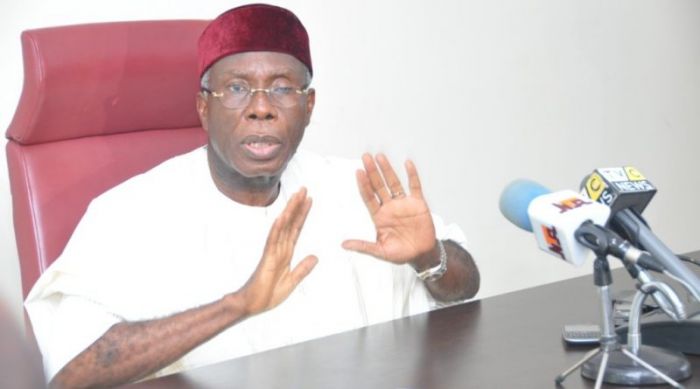- FG’ll Recreate Grazing Reserves in Nigeria, Says Ogbeh
The Minister of Agriculture and Rural Development, Chief Audu Ogbeh, on Thursday, declared that the Federal Government would soon embark on the re-creation of grazing reserves across the country.
Ogbeh disclosed this when he received 64 participants of the Executive Intelligence Management Course 12 and faculty members of the Institute for Security Studies, lower Usma Dam, Bwari, Abuja, at the headquarters of the Federal Ministry of Agriculture and Rural Development.
He told his guests that the recreation of grazing reserves became necessary because of the farmers and herders conflict as well as the high level of unemployment across the country, adding that the grazing reserves would help in solving the problems.
Ogbeh said, “We are not going to any state that is not interested and we are not going to collect anybody’s land.”
He called on the individuals who had interest and ability to build grazing reserve to do so and promised government’s support.
The minister, in a statement from the FMARD, thanked the delegates and told them that the institute was working for the development of the West African region and Africa in general.
Ogbeh said the security analysis they embarked on in the institute was a good gesture as it would help in developing Nigeria’s democracy, especially during elections when the country normally recorded high level of violence due to desperate politicians.
He called on the participants to focus on the security challenges facing the West African region and the continent.
The Director of the Institute, whose name was simply given as Alhaji A. S. Adeleke, and who was represented by the Deputy Director, Studies, Dr A. M. Wali, said the course participants were drawn from 21 agencies in Nigeria and five other countries, including the Benin Republic, Liberia, Niger and Sierra Leone.
He said the participants were senior officers from the military intelligence, security, paramilitary, law enforcement, regulatory and other Federal Government strategic agencies.
Adeleke further said the theme of this year’s course was ‘Transhuman and International Migration: Challenges on Governance, Peace and Sustainable Development in sub-Saharan Africa.’

 Forex2 weeks ago
Forex2 weeks ago


 Naira2 weeks ago
Naira2 weeks ago
 Billionaire Watch1 week ago
Billionaire Watch1 week ago
 Company News4 weeks ago
Company News4 weeks ago




 Naira2 weeks ago
Naira2 weeks ago




 Naira1 week ago
Naira1 week ago




 Naira4 weeks ago
Naira4 weeks ago
 Nigerian Exchange Limited4 weeks ago
Nigerian Exchange Limited4 weeks ago






















